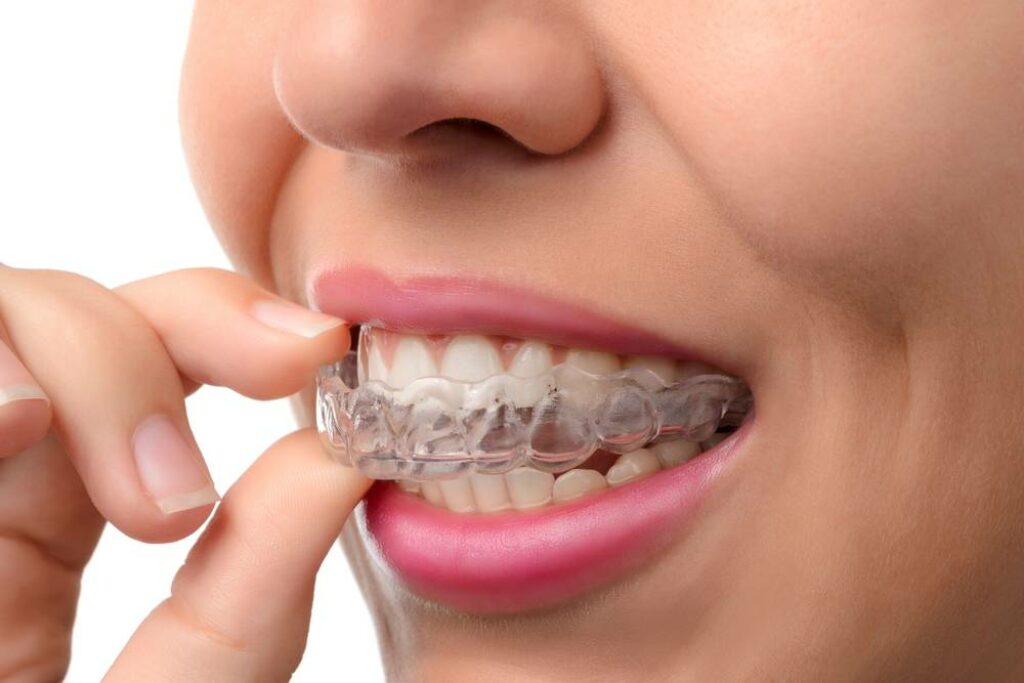In the pursuit of a beautiful, straight smile, many adults turn to innovative orthodontic treatments like Invisalign. These clear aligners offer a discreet and convenient solution for correcting misaligned teeth and bite issues. However, for those on Medicare, the question of whether this popular treatment is covered can be a source of confusion and concern.
Understanding Orthodontic Services and Their Coverage
Before delving into the specifics of Invisalign coverage, it’s essential to grasp the distinction between orthodontic services and general dental care. Orthodontic services are specialized treatments focused on realigning teeth and jaws, addressing issues like overbites, underbites, crowded teeth, and gaps.
Some common orthodontic services include:
- Braces: Traditional metal or ceramic braces are affixed to the teeth and use wires and brackets to gradually shift them into proper alignment.
- Aligners (e.g., Invisalign): These transparent, removable trays are custom-made to gradually reposition teeth over time.
- Retainers: Used after braces or aligners, retainers help maintain the newly corrected tooth positioning.
While general dental care, such as cleanings, fillings, and extractions, may be partially covered by Medicare in certain circumstances, orthodontic services are often considered cosmetic and, therefore, not typically covered.
Does Medicare Cover Invisalign?
Unfortunately, the straightforward answer is that Medicare does not cover Invisalign or any other clear aligner treatments. These orthodontic services are generally considered elective and cosmetic, rather than medically necessary procedures.
However, there are exceptions to this rule. If an orthodontic treatment is deemed medically necessary due to a specific condition or injury, Medicare may provide coverage. For example, if you require orthodontic work as part of a reconstructive procedure following an accident or facial trauma, Medicare Part A (hospital insurance) may cover the treatment if it is performed during an inpatient hospital stay.
Exploring Alternative Coverage Options
While Medicare may not cover Invisalign in most cases, there are alternative options to consider:
-
Medicare Advantage Plans: Some Medicare Advantage plans, also known as Medicare Part C, offer additional dental benefits, including orthodontic coverage. However, the extent of coverage and associated costs can vary significantly between plans and providers.
-
Dental Insurance: Private dental insurance plans may provide partial coverage for orthodontic treatments like Invisalign, although they often have limitations and caps on the amount covered.
-
Flexible Spending Accounts (FSAs) or Health Savings Accounts (HSAs): If you have access to an FSA or HSA, you may be able to use pre-tax dollars to pay for Invisalign or other orthodontic treatments.
-
Payment Plans: Many orthodontic providers offer in-house financing or payment plans, allowing you to spread out the cost of Invisalign over several months or years.
Before committing to any orthodontic treatment, it’s crucial to thoroughly review your insurance coverage, understand the associated costs, and explore all available payment options.
Making an Informed Decision
While the prospect of navigating insurance coverage for Invisalign can be daunting, taking an informed and proactive approach can help you make the best decision for your oral health and financial well-being.
- Consult with your orthodontist and insurance provider to understand the specific details of your treatment plan and potential coverage options.
- Explore alternative financing methods, such as FSAs, HSAs, or payment plans, to help manage the costs.
- Consider the long-term benefits of orthodontic treatment, such as improved oral health, confidence, and quality of life.
By weighing all factors, you can make an informed decision about whether Invisalign or other orthodontic treatments align with your needs, priorities, and budget.
How Do I Get Started? | Invisalign
FAQ
Does Medicare pay for Invisalign?
Can Invisalign be medically necessary?
How do I know if my insurance covers Invisalign?
Is Invisalign cheaper if your teeth aren’t that bad?

